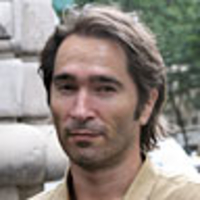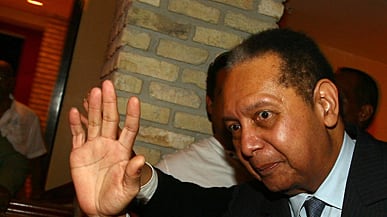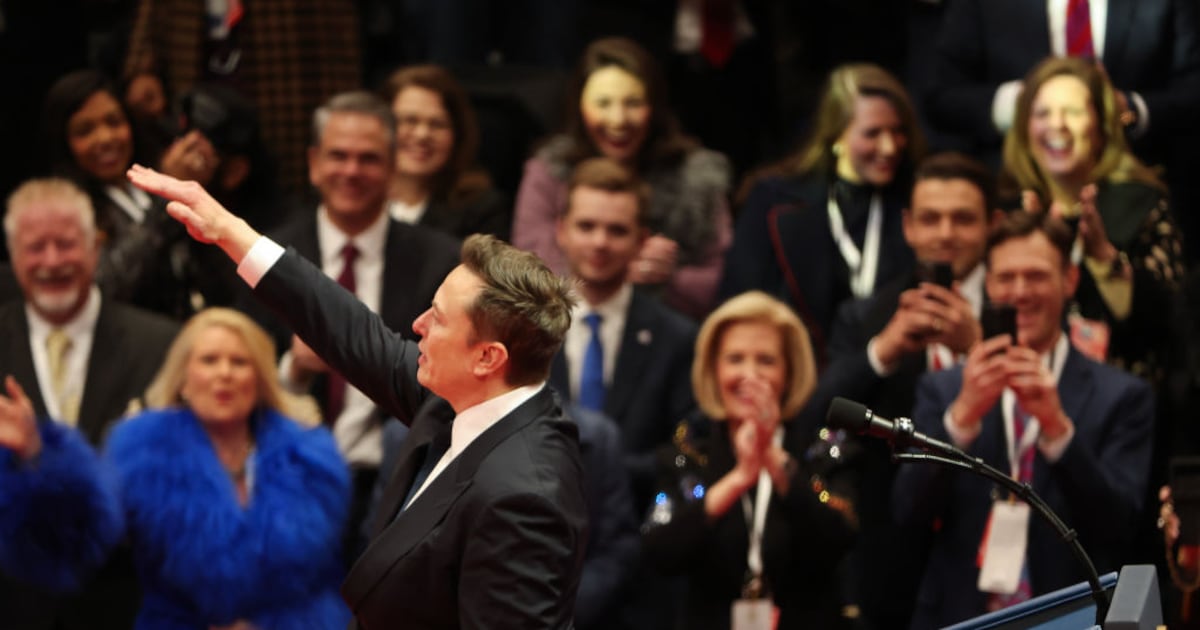UPDATE: Duvalier was arrested in Haiti Tuesday.
Former Haitian Dictator Jean-Claude "Baby Doc" Duvalier stunned his compatriots when he suddenly showed up in his homeland after nearly 25 years of self-imposed exile in France. After disembarking from a commercial flight, he kissed Haitian soil. Word quickly spread around Port-au-Prince: "The President is back."
There are many mysteries around his return. Why has he come back? Did France know? Will he face Justice? Does he hope to play the kingmaker in a tainted presidential electoral process? And most importantly: Amid a multibillion-dollar humanitarian and reconstruction effort, will he destabilize or be a constructive force?

At the airport, Duvalier's only apparent comment to journalists was: "I came to help." The "trigger" for Duvalier's return, his partner Véronique Roy told AFP, was the apocalyptic television post-quake footage last year. Two days after the devastating temblor, I queried Duvalier about his reaction to such images. He responded in impassioned but officious writing, "It is with great horror and a profound emotion, but also with a very great concern, that I have monitored the murderous and devastating consequences of the terrible earthquake that has so piteously struck our country."
"Haitian People, I know your extraordinary courage, selflessness, and the sacrifices that you are all capable of to save our country," he continued. "The painful moments that we live are calling out to a sense of national sacrifice. In these particularly dramatic circumstances for our country, I must express all of my solidarity and my support." (His solidarity meant promising to channel nearly $8 million to the humanitarian response; Duvalier money that the Swiss froze in 2002.)
The old-school presidential tone of Duvalier's note was, in many ways, not a surprise—after all, his time as "President for Life" began when he was 19 years old and lasted into his mid-30s. (And in France, he doesn't seem to have ever held a job.)
But on another level, it was surreal given how utterly un-presidential his years in France were. Early on, the thirtysomething playboy exile who, along with his striking bling-bling wife Michèle Bennett Pasquet, would cruise around the Cote d'Azur in a plethora of sports cars and slumber at the Théméricourt Chateau. Perhaps it was the lack of a nation's resources to tap into—specifically Haiti's many millions of dollars in divertible aid money—but the Duvalier's penchant for the high life appears to have led them toward financial ruin. (Bennett's love of fur stood out on their tropical island well before they made it to chilly Paris.)
At the airport, Duvalier's only apparent comment to journalists was: "I came to help."
• Eric Pape: Haiti Dictator’s Poor-Man Exile?Several people who knew Baby Doc in Paris say that a ruthless divorce in which his wife took most of the remaining money left him on a path toward a depressing middle-aged existence. In recent years, according to their accounting, he rarely went out and watched copious amounts of television, especially anything that fed his nostalgia for Haiti.
Baby Doc ended up cohabiting in a simple two-room Parisian apartment with Roy (who returned to Haiti with him), and living at least partly off of the Haitian Diaspora, old family friends and ex-employees—if they are to be believed. His former lawyer, Sauveur Vaisse, told me last spring that Duvalier owed him money that he never expected to receive, and that the former Haitian leader still contacted him from time to time to help "make ends meet."
As for Bennett, who was much hated in Haiti for her abrasive venality, she was still living, as of last year, in a comfortable Parisian apartment in a posh neighborhood just south of the Champs-Élysées. Have the years softened her? An elderly longtime acquaintance of the former first lady gave me her phone number on the condition that I not tell her where I got it. "She's not going to be happy."
When I spoke very briefly with Bennett a few weeks after the quake, several people prepared me for the possibility of a harsh response. The phone rang five times before she picked up. She explained in a halting, cracking voice that she was on the other line talking to Haiti. She was weeping. She had just learned of the death of another relative. "It is so horrible," she said before hanging up.
Such is the scale of the awesome tragedy of Haiti that it brought tears out of a woman who many Haitians believed to be utterly heartless. And it convinced a nostalgic former dictator to overcome a fear of Haitian justice and boldly return to his country.
The Duvaliers' notorious militia, the Tonton Macoutes, tortured and killed tens of thousands of the regime's ostensible opponents. (It is a charge that Baby Doc has denied in an obtuse way, saying that the Reagan administration pegged its aid to human-rights concerns, but that the money flow continued unabated.) That, along with the alleged pillaging of tens of millions of dollars—charges Baby Doc denies—helped set a traumatized nation up for a place firmly at the bottom of an array of quality-of-life and poverty indexes at least 15 years before the quake.
Given the messy state of affairs there now, Duvalier could reasonably conclude that his risk of prosecution is at its nadir and his potential political influence, in the run-up to a contested presidential run-off, is on the rise. Duvalier can even argue that many Haitians were better off under his rule than they are now; how could they be worse off? But none of that means that the Duvaliers don't bear a substantial share of the responsibility for the hell that Haiti descended into.
Yes, the president is back. And while it remains to be seen whether he will help, as he says, a lot of Haitians are surely hoping that it is not for life.
Eric Pape has reported on Europe and the Mediterranean region for Newsweek Magazine since 2003. He is co-author of the graphic novel Shake Girl , which was inspired by one of his articles. He has written for the Los Angeles Times magazine, Spin, Reader's Digest, Vibe, Courrier International, Salon, and Los Angeles from five continents. He is based in Paris. Follow him at twitter.com/ericpape






